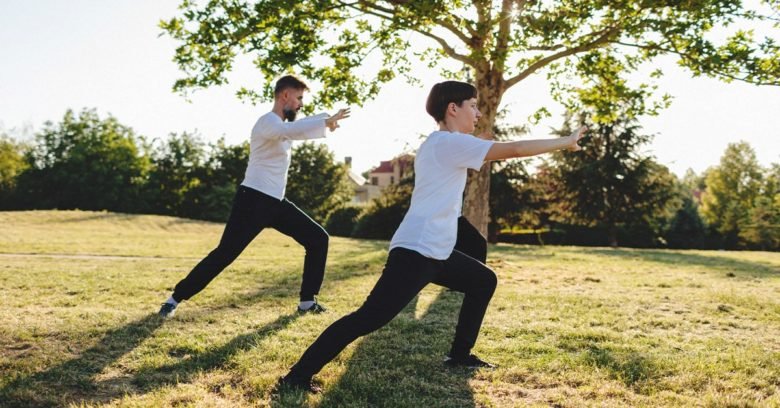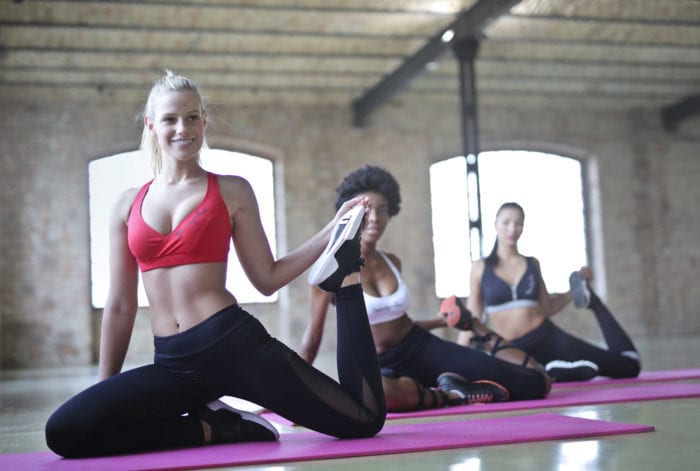When we are stressed our breathing becomes short, and shallow. We often breath out through our mouths. When we are stressed we are often told to take big breath and blow it out. Our thought is to immediately get as much oxygen into our systems particularly when we have strenuously exercised.
When and how we breathe is largely a mindless activity, like our heart beating, our muscles moving it happens thanks to our Autonomic Nervous System. When we breathe and how we breathe is habitual dependent upon our circumstances and previous experiences.
It may seem counter-intuitive, but science is showing us that in fact, the level of Carbon Dioxide and our sensitivity to it in our system plays a critical role in how much oxygen gets to our cells. Carbon Dioxide tells your brain when to breathe again and when you have a low tolerance to it you breathe more often than is needed.
Without being aware when we shallow breath through the mouth we are stimulating a stress response in the body. When we are in a chronic state of stress, we can develop a habit and chronically ‘over breathe which has a flow-on effect throughout the entire body both biochemically and physically and can impact our physical and mental health negatively.

Our lifestyle factors not only affect our health, but it can also affect our ability to correctly breathe. How we breathe at rest, affects our ability to breathe when sleeping as well when we exercise.
Do you find yourself having cold feet and hands? Do you find it difficult to concentrate when practicing mindfulness? Do you have a low Heart Rate Variability? Do you wake up feeling tired? How we breathe can have an impact on all of this.
Every time we breathe in through our nose, we activate our sympathetic nervous system and when we breathe out through our nose we engage our parasympathetic nervous system. A simple action is help calm down is to exhale longer than we inhale through the nose.

When we breathe through our nose we produce Nitric Oxide, an important vasodilator that reaches the lungs and allow more blood to circulate. When we engage the diaphagm and take slow breaths on the exhale our lungs stimulate the vagus nerve which engages our parasympathetic nervous system. When we take long, slow, deep diaphragmatic breaths and slow down the respiration rate we increase the amount of air that enters the lungs.
If we look at the ancient wisdom and practices, we can see a common thread of the importance of breathing. Yogis ‘pranayama’ breathing exercises help improve tolerance to Carbon dioxide and why breathing in synchronization to movement is a key component of the yoga practice. If we breathe too quickly when doing physical postures we can hyperventilate. Tai Chi is another ancient which is the practice of breath synchronization to the movement and practice slowing down our breath. Praying and chanting is another way of practicing our focus and engaging our parasympathetic nervous system.

Research given us a greater understanding of the biomechanics, biochemistry of the body, and neuroscience of how the brain works and habit change. We can re-wire the brain to learn how to breath more efficiently and more effectively with breathing exercises to help gradually build our tolerance to carbon dioxide and allow more oxygen to reach our tissues and to turn off the stress response if it is not needed.
Breathing exercises have been used and well known to help asthma, however, what is less well known is its benefits in a range of chronic health conditions and is another tool in Lifestyle Medicine that can help patients.
About Vanita Smith

Vanita Smith is a nutritionist (MHumNut), board certified lifestyle medicine professional, NBHWC certified health coach. She has a particular interest in habit change and has completed training and learnt from neuroscientists and behaviour scientists to better understand how she can help clients with habit change.
In her business, Ayubowan Health & Lifestyle Medicine, she draws on this insight to help clients bridge the gap between their health intentions and daily life. She works as a keynote speaker, health coach, breathwork instructor and health program facilitator. Connect with her at hello@ayubowanhealth.com or http://www.ayubowanhealth.com/















